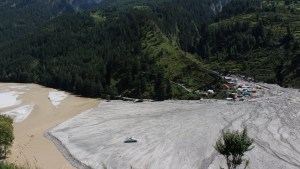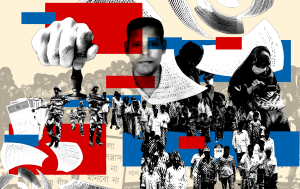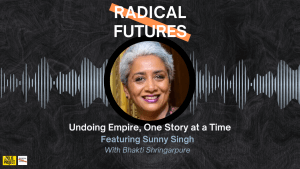

As hundreds of thousands of Pushtun speak out and march against the violence of the Pakistani state, and that of its imperial backers, some pieces I wrote earlier against the brutalization and demonization of the Pushtuns, and against the indiscriminate and brutal wars we have inflicted upon them.
How [can] one account for … politically expedited collective amnesia –of manufacturing consent and discarding history at the speed of one major military operation every two years? One way of decoding the traumatic terror at the heart of the codification of “9/11″ is in fact to read it as a form of historical amnesia, a collective repression, that corresponds best with the globalised spectacle of its having made the apparently invulnerable evidently vulnerable. … The Armageddon crumbling of the twin towers of the World Trade Center, more than anything else, staged the vulnerability of the principal imperial memento projecting the cause of the globalised capital–its titular totem poles, phallic symbols of its monumental potency. That vulnerability was too memorable to be allowed to be remembered. Fabricating instantaneous enemies and moving targets, one on the trail of the other, thus became the principal modus operandi of the virtual empire. An empire lacking, in fact requiring an absence of, long term memory, and banking heavily on the intensity of short term memories that lasts only for about one to two years–one to two wars per one presidential election
Hamid Dabashi, Native Informers And The Making Of The American Empire Al-Ahram Weekly June 2006
I know of no other country in which, speaking generally, there is less independence of mind and true freedom of discussion than in America. In America, the majority has enclosed thought within a formidable fence. A writer is free inside that area, but woe to the man who goes beyond it.
Alexis de Tocqueville, Democracy In America (As quoted in Dabashi’s Brown Skins / White Masks)
The Waziri….has today become an avatar for violence, terrorism, rebellion, guerrilla warfare and other things deviant and vile. There is however a long heritage of depicting these people of the tribal regions of Pakistan and Afghanistan as genetically prone to violence and culturally prone to resistance to ‘civilised’ politics. This prejudice informs any and all writing about them, their history and the wars being waged in their backyards. From British colonial ear shenanigans – given the pretty-cute euphemism of ‘The Great Game’ to veil the fact that the White man’s ‘games’ are the brown man’s death sentence, genocide, pillage, massacre, mass murder, refugee crisis etc. to current American imperial wars in the region, the people of this region have been seen as nothing more than ‘barbaric’,and ‘fundamentalist’ and continue to be spoken about with the worst of Orientalist and colonialist simplicities one can imagine – tribal, unconquerable, rebellious, and lawless. Where the British colonialist left off, their ancestors in the American political and academic establishment and the Pakistani post-colonialist structure have continued.
Much of this dehumanisation is in evidence in articles written about the Waziris, the current military campaign unfolding there.
How [can] one account for … politically expedited collective amnesia –of manufacturing consent and discarding history at the speed of one major military operation every two years? One way of decoding the traumatic terror at the heart of the codification of “9/11″ is in fact to read it as a form of historical amnesia, a collective repression, that corresponds best with the globalised spectacle of its having made the apparently invulnerable evidently vulnerable. … The Armageddon crumbling of the twin towers of the World Trade Center, more than anything else, staged the vulnerability of the principal imperial memento projecting the cause of the globalised capital–its titular totem poles, phallic symbols of its monumental potency. That vulnerability was too memorable to be allowed to be remembered. Fabricating instantaneous enemies and moving targets, one on the trail of the other, thus became the principal modus operandi of the virtual empire. An empire lacking, in fact requiring an absence of, long term memory, and banking heavily on the intensity of short term memories that lasts only for about one to two years–one to two wars per one presidential election
Hamid Dabashi, Native Informers And The Making Of The American Empire Al-Ahram Weekly June 2006
I know of no other country in which, speaking generally, there is less independence of mind and true freedom of discussion than in America. In America, the majority has enclosed thought within a formidable fence. A writer is free inside that area, but woe to the man who goes beyond it.
Alexis de Tocqueville, Democracy In America (As quoted in Dabashi’s Brown Skins / White Masks)
The Waziri….has today become an avatar for violence, terrorism, rebellion, guerrilla warfare and other things deviant and vile. There is however a long heritage of depicting these people of the tribal regions of Pakistan and Afghanistan as genetically prone to violence and culturally prone to resistance to ‘civilised’ politics. This prejudice informs any and all writing about them, their history and the wars being waged in their backyards. From British colonial ear shenanigans – given the pretty-cute euphemism of ‘The Great Game’ to veil the fact that the White man’s ‘games’ are the brown man’s death sentence, genocide, pillage, massacre, mass murder, refugee crisis etc. to current American imperial wars in the region, the people of this region have been seen as nothing more than ‘barbaric’,and ‘fundamentalist’ and continue to be spoken about with the worst of Orientalist and colonialist simplicities one can imagine – tribal, unconquerable, rebellious, and lawless. Where the British colonialist left off, their ancestors in the American political and academic establishment and the Pakistani post-colonialist structure have continued.
Much of this dehumanisation is in evidence in articles written about the Waziris, the current military campaign unfolding there.
SUPPORT US
We like bringing the stories that don’t get told to you. For that, we need your support. However small, we would appreciate it.







